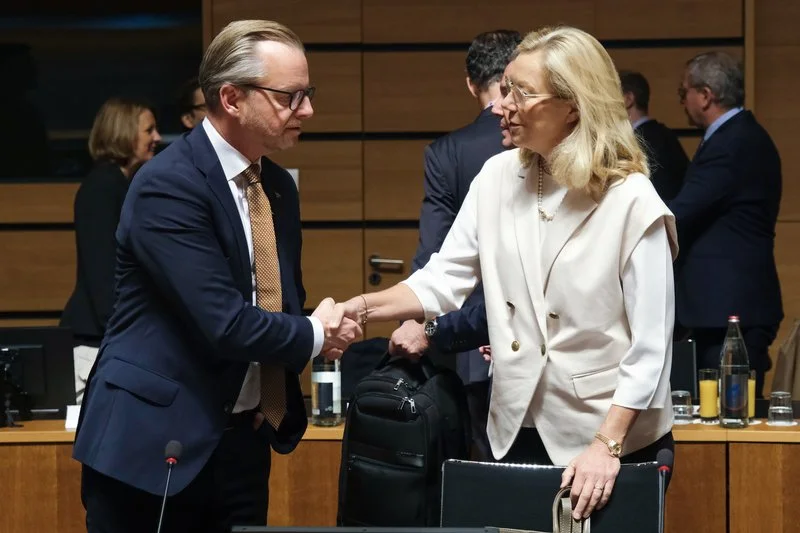Economic and Financial Affairs Council Moves Further Away from Russian Dependency
Zbyněk Stanjura (Minister of Finance of the Czech Republic) at a press conference following the meeting of the Council. Photo: European Union
The Economic and Financial Affairs Council of the EU outlined its next steps in phasing out the EU’s reliance on Russian fossil fuels, and adopted several other measures at its meeting on October 4, according to the Council of the EU.
The Council, led by Zbyněk Stanjura, Minister of Finance of the Czech Republic, reached an agreement to add a new section to its REPowerEU proposal- a plan that seeks to diversify and secure energy supplies in an effort to distance the EU from Russian dependency. In this regard, the program will attempt to pursue financial investments and reforms while causing as little disruption as possible to everyday consumers.
Proposals also passed at the meeting included the Netherlands’ recovery plan, an EU law on adequate minimum wages, and an act protecting users’ rights online.
“Today we achieved a major step forward in strengthening Europe’s autonomy from Russia’s fossil fuels…the Czech Presidency is fully determined to deliver on our promise to radically overhaul the Union’s energy sector,” said Minister Zbyněk Stanjura.
The current energy crisis facing the European Union is a near-direct effect of Russia’s February invasion of Ukraine nearly eigh As the EU moved to sanction Russia for its unprovoked attack, Russia responded by cutting its fossil fuel exports into Europe. Since the EU depended on Russia for 45% of its gas imports, European countries have had to scramble to find other energy sources, especially as winter approaches.
REPowerEU is one of the EU’s solutions to the ongoing energy crisis which seeks to reduce consumption, produce clean energy, and diversify supplies, according to the European Commission.
In their latest compromise, the Economic and Financial Affairs Council approved an additional €20 billion proposed by the European Commission that will fund REPowerEU; however, the EU Council proposed that these funds be acquired from a variety of sources, not just the one proposed by the Commission.
“This is an excellent way to finance measures to address high energy prices and energy poverty by boosting energy efficiency and supporting vulnerable people and companies,” said Valdis Dombrovskis, Executive Vice-President and European Commissioner for An Economy that Works for People.
From left to right: Mikael Damberg (Minister for Finance of Sweden), Sigrid Kaag (Deputy Prime Minister and Minister of Finance of the Netherlands). Photo: European Union
The Netherlands’ recovery plan was approved at the meeting, making it the 26th such plan among member states under NextGenerationEU –“the largest stimulus package ever.” The EU set aside €806.9 billion total for NextGenerationEU and its sub-organizations.
This recovery plan allocated up to €4.7 billion which will “enable the Netherlands to foster its economic recovery from the COVID-19 pandemic and finance the green and digital transitions.” The Netherlands set aside 48% for measures that support the fight against climate change while also lessening their dependency on Russian fossil fuels and 26% for efforts that support advancements in digital technologies.
An EU law on adequate minimum wages was adopted by the Council. Marian Jurečka, Deputy Prime Minister and Minister of Labour and Social Affairs of the Czech Republic, called this law “a message of hope…When people have to penny-pinch because of the energy crisis.”
This law establishes procedures for the adequacy of minimum wages, promotes collective bargaining on setting wages, and enhances access to minimum wage protection, according to the Council.
In a first in the area of digital regulation, the Economic and Financial Affairs Council approved the Digital Services Act (DSA) which will take effect in fifteen months.
The DSA protects the digital space by ensuring that platforms will “not only have to be more transparent, but will also be held accountable for their role in disseminating illegal and harmful content,” according to the Council.
The Economic and Financial Affairs Council will meet again in Brussels on November 8, 2022.


